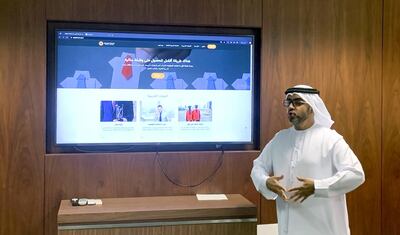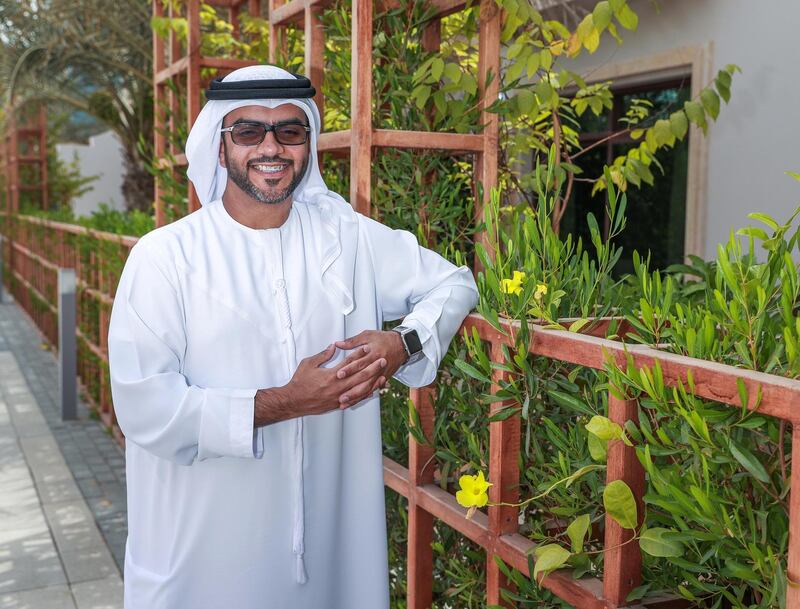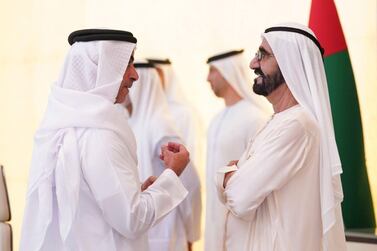An Emirati lawyer launched an e-learning job training programme to teach UAE citizens critical skills to survive in a competitive market.
Harvard alumnus Abdulla Al Jefri said there was a need to coach fresh graduates and midlevel managers.
He is passionate about giving UAE citizens the best shot when they are pitted against experienced expatriates at work.
Al Jefri formulated the Arabic-language Najah Train platform by drawing on local and overseas expertise to create the course content and videos. Najah means success in Arabic.
“If a private sector company hires an Emirati, he has to be of the same or of better calibre than an expatriate with experience,” said Mr Al Jefri, who works for Abu Dhabi Judicial Department.
“We have the best people coming to work in the UAE. Emiratis also need the chance to be in the best in their jobs.”
The policy of Emiratisation – "Tawteen", in Arabic – is a central focus in the Emirates and mandates inclusion of UAE nationals in the job market, particularly in the private sector, where as few as 2 per cent of citizens work.
President Sheikh Khalifa has described Emiratisation as a "tool for enabling" citizens and Sheikh Mohammed bin Rashid, Vice President and Ruler of Dubai, announced in October that 20,000 new jobs would be created for Emiratis over the next two years.
Mr Al Jefri, 36, has run dozens of training courses and seen first-hand how university students and young managers fall short in the job hunt.
"We are focusing on Emirati jobseekers. The programme has been created understanding the challenges we face in this country based on our culture and environment," said Mr Al Jefri, who completed a master's degree in public administration from the Harvard Kennedy School and spent years rebuilding his life after a serious car accident.
“What makes it unique is that it is designed specifically for people of this country and that it is in Arabic.”

He aims to plug a gap in the market, where online courses on work skills are usually in English, the instructional material is lengthy and long-winded and they do not specifically address young Emiratis.
About 16 courses cover time management, communication, problem solving, negotiation, creativity and innovation.
The information includes tips to kick-start a job search and refresh the skills of midcareer professionals. Each course ends with a quiz and an assessment.
“There are people with strong academic and professional qualifications but in job interviews they don’t move ahead because they need to develop soft skills,” he said.
Research by Harvard University, the Carnegie Foundation and Stanford University Research Centre in 2016 showed that 85 per cent of job success came from well-developed soft or people skills – the remaining 15 per cent was attributed to technical know-how.
“Our material is direct and to the point,” said Mr Al Jefri.
“There is an exercise at the end of each course to find out whether you have understood the segment.”
There is a growing appetite among young Emiratis for such training.
Sulaiman Al Marri, a business administration graduate, said he wished he was better prepared to navigate the job market.
"I got good grades but so did many others and there is so much competition in the world," said Mr Al Marri, 22, who has completed internships with construction and technology companies but is still looking for a full-time job.
“I could have used more input on my CV and how to handle a job interview.”
Mr Al Jefri has held meetings with federal and regional government departments to use the programme for in-house training sessions.
Collaborations with universities are being discussed so students can access the programme before they graduate.
“In training evaluations, we realised the gaps and when we dug deeper we found the problem was basic information about how to deal with issues in an office,” he said.
“These are skills required in any department in any company that will be useful for Emiratis.”
The works on smartphones and tablets. The software also allows a company's human resources department to track the progress of staffers who log in and a report is generated to confirm employees have completed the course.
It has taken Mr Al Jefri more than three years to pull together the programme.
“Our national agenda is based on Emirati human capital so people are exactly what we need to invest in,” he said.








